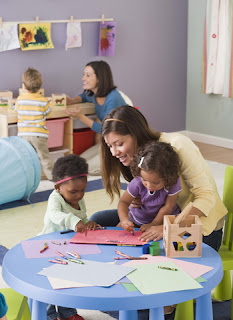The refusal of children to attend school is often based on irrational fear, which usually appears first in children attending preschool nurseries, being more common in second grade who attend. To show their displeasure by going to school, the child frequently complain of headaches Of throat or stomach just before time to go to school. The "disease" better when allowed to stay home, only to reappear the next morning before going to school again. In some cases, the child may refuse entirely to leave the house and for that we use all the strategies at their disposal as mourn and react with a huff.
Why does not the child go to school?
This attitude is very common in firstborn, especially when, after the arrival of a brother see how he must leave home, while his mother is the youngest child care. Denial of school can also occur after a period in which the child has been home with his mother, for example, after summer vacation, About holidays or after a brief disease.
How to help your child not to go to school?
With calm and tranquility. Usually attend school is an enjoyable event for young children, but for others it represents fear or panic. Parents have good reason to worry when they see their child becomes ill due to stress. Some children "malingerers" or exaggerate physical symptoms to stay home and not go to school. Often the child between five and ten years old, who behaves in this way, is suffering from a paralyzing fear of leaving the safety of family and home. It is very difficult for parents to address child's panic, but these fears can be treated successfully with or without professional help. It all depends on the degree of fear that a child has. If parents notice that may be a fad, it's about stress, talk to him and his teacher for their day to day school more interesting and probably all will.
Fear of school children
Children with an irrational fear towards school may feel insecure when left alone in a room. They can also show attachment behavior towards their parents and even become her shadow, following them everywhere. These fears are common in children with so-called "anxiety disorder". Furthermore, they have difficulty sleep, One exaggerated fear and an unrealistic fear of animals, monsters, thieves or darkness. The potential long-term effects can be serious for a child with persistent fears, without care professional. The child may develop serious social problems at school and, if you stop going to school or see their friends for long. Before that can happen, parents can help their child taking it to a child and adolescent psychiatrist, who will work with him to return immediately to school and perform other daily activities.
Some children require extensive treatment to determine the causes of fear. Older children or adolescents, who refuse to go to schoolRequire more intensive treatment. In any case, the irrational fear of leaving home and the father or mother company can be treated successfully. Parents should seek professional help. The pediatrician can tell parents a child and adolescent psychiatrist.





















